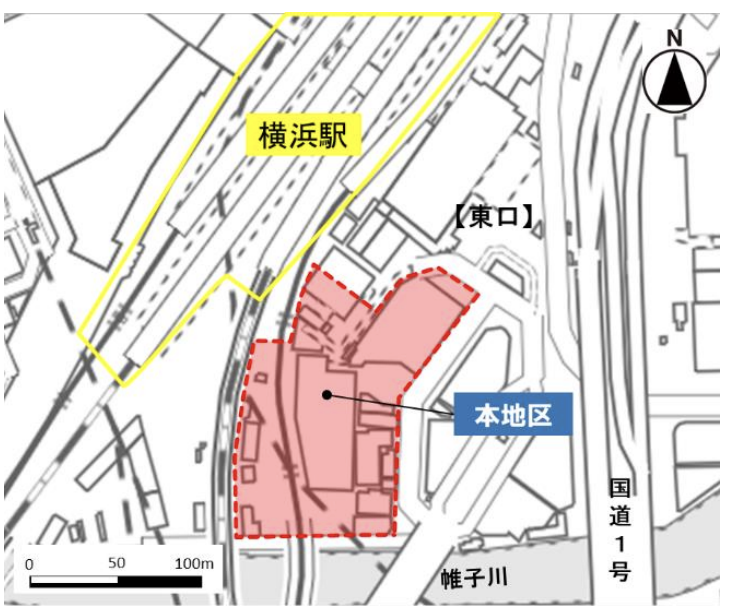For real estate investment and rental management owners, acquiring relevant certifications and deepening their knowledge leads not only to self-improvement, but also to more accurate asset management and greater external credibility. In recent years, professional qualifications have become increasingly important in the real estate industry due to the development of the legal system, and qualification holders are highly regarded as professionals. In addition, the knowledge gained through qualification acquisition is useful for the owner's own career development and can expand the scope of activities in the real estate business in the future. This article provides a comprehensive overview of the major real estate management-related qualifications, such as real estate transaction, rental property management, condominium management, chief administrator, financial planner (FP), and certified real estate consulting master, including their outline, degree of difficulty, merits of acquisition, and fields of activity. The following is an overview of the qualifications, their difficulty levels, advantages of obtaining them, and fields of activity.
In addition to acquiring qualifications to arm yourself with knowledge, it is also important to choose a reliable professional company to manage your property. INA&Associates, for example, has a steadily growing track record and is favored by many property owners for its high quality rental management services using technology and professional staff. By working with a partner with such an extensive track record and ability to make proposals, as well as by acquiring qualifications and deepening your own knowledge, you will be able to manage your assets more safely, securely, and efficiently.
Real Estate Transaction Professionals (Real Estate Agents)
A Real Estate Transaction Specialist (commonly known as a "宅建士") is a national certification that certifies expertise in real estate transactions. It is an important qualification that is legally obligatory for real estate brokers who are engaged in the brokerage of real estate sales and rentals, and each office must have at least one full-time registered real estate transaction specialist for every five employees. This is intended to ensure the fairness and reliability of transactions by having a licensed real estate transaction specialist. Building contractors have a wide range of legal knowledge, including the Civil Code, Building Lots and Buildings Business Law, and City Planning Law, and can perform exclusive duties such as explaining important matters when signing a real estate contract and affixing their names and seals to the contract.
Difficulty: The exam for certified real estate builders is relatively high, with more than 200,000 people taking the exam every year, and the pass rate is only around 15-18%. For example, in the 2023 exam, 40,025 out of 233,276 examinees passed, for a pass rate of 17.2%. The exam consists of 50 questions (four choices) covering a wide range of topics including law, taxation, and real estate practice, so a reasonable amount of study is required to pass. However, there are no restrictions on eligibility for the exam, making it easy for those outside the real estate industry and owners themselves to take the exam.
Merit:By obtaining a certified real estate contractor license, you will acquire systematic knowledge of real estate transactions. It is also advantageous for owners themselves when buying and selling properties, as they become familiar with property rights, contracting practices, and related laws and regulations. You will also be able to accurately understand technical terms and contract details when communicating with brokers, and grasp the key points of important matters explanations. In addition, since the real estate contractor qualification is a national qualification widely recognized in the real estate industry, your credibility as a "real estate professional" will be enhanced. It is also an essential qualification if you want to run your own real estate company in the future or change jobs on the side or as a licensed real estate contractor, and will broaden your career options.
Fields of activity: Building contractors can be active in the real estate industry in general, including real estate brokerage firms, developers, and management companies. They are especially indispensable in the field of real estate transactions, and you cannot even obtain a license to operate a real estate business without a certified real estate contractor. As an owner, having a registered real estate contractor allows you to personally check and implement important item explanations when purchasing a property, or to provide consultation for real estate transactions for acquaintances. Also, licensed building contractors are valued by property management companies. For example, at INA & Associates, a comprehensive real estate business that focuses on high-end rentals and brokerage of sales and purchases, staff members with expertise in real estate and investment, including certified building contractors, are available to help. Thus, a certified real estate contractor is a fundamental qualification in the real estate business and is well worth acquiring for owners.
Rental Real Estate Business Manager
The Certified Rental Property Manager is a certification that certifies expertise in the management and operation of rental properties. Previously a private qualification recognized by industry associations, it was upgraded to a national qualification in 2021 due to a revision of the law. The examination system has been strengthened accordingly, and the exam is now a 50-question, 120-minute national exam, similar to the exam for registered real estate builders and chief superintendents of property management. Rental property business administrators are professionals who belong to companies that provide rental property management services and specialize in the management and operation of properties entrusted by their owners. Specifically, they are familiar with all aspects of rental management practice, from tenant recruitment, contracting, rent control, handling complaints, restoring properties to their original condition when vacating, and building maintenance management.
Difficulty: The number of applicants has increased significantly since the certification became a national qualification, and the pass rate has been declining somewhat, but the pass rate is still generally 25-30% every year, which is higher than that of real estate agents. For example, in FY2023, the pass rate was 28.2% (7,972 examinees passed), almost unchanged from the previous year's 27.7%. In FY2024, the passing rate was 24.1%, further increasing the difficulty level of the examination. The examination covers a wide range of topics, including the Civil Code and the Land and House Lease Law concerning lease contracts, housing facilities and management, building maintenance and repair, and the Rental Housing Management Business Law, and tests the legal knowledge and practical knowledge required for rental management. Recent amendments to laws are also tested, so it is essential to keep up with the latest information.
Merit:The greatest merit of acquiring the Certified Rental Property Manager certification is the ability to systematically acquire specialized knowledge of rental management. By having this certification, owners themselves will be able to check lease contracts, deal with tenants, and plan building maintenance from a professional perspective. For example, they can acquire practical know-how on how to prevent problems with security deposits and restoration costs, how to propose remodeling measures to prevent vacancies, and legal procedures in the event of rent arrears. This certification is also a requirement for "business managers," who are required by the Rental Housing Management Business Law to be in place for management companies above a certain size. Rental housing management companies managing 200 or more units are required to have at least one qualified manager per office, and demand for certified managers is increasing within the industry. This certification will also be essential for owners who wish to run their own rental property management business in the future.
Field of activity:Rental property managers are mainly active in rental property management companies. They act as a liaison between property owners and tenants, and support proper management as rental management professionals. Specifically, they are in charge or in charge of the rental management department of the management company, and are involved in proposing ways to improve the income and expenditure of properties, developing tenant recruitment strategies, and improving the quality of facility inspections and complaint handling. Because certified staff members are knowledgeable about the law, they can easily gain the trust of owners when reporting to them and handling problems, which contributes to improving the company's credibility. In addition, rental management has recently become more technology-based, and qualified staff can be even more effective when they are proficient in using IT tools. For example, INA&Associates is working to achieve high occupancy rates by introducing AI for rent setting and proposing optimal recruitment plans for each property based on market analysis using big data on more than 10 billion properties. In this way, by combining the knowledge of rental property managers with the latest technology, we can expect to increase owner profits by quickly eliminating vacancies and maximizing earnings.
Condominium Management Professionals
Management of high-rise condominiums requires specialized knowledge, and condominium managers are nationally certified to support management associations.
A condominium manager is a specialist who provides consultation, advice, and guidance to condominium management associations and condominium unit owners (condominium owners) by utilizing his/her extensive knowledge and practical experience in the management of condominiums. This is a national qualification established for the proper management of condominiums, and they are positioned as good advisors to the management association. Specific services include advice on drafting and amending management rules, support for management association operations, assistance in formulating long-term repair plans, advice on appropriate levels of management fees and reserve funds for repairs, and mediation for resolving problems within condominiums. A condominium manager has comprehensive knowledge of laws (such as the Act on the Proper Management of Condominium Unit Ownership and the Act on the Proper Management of Condominiums), construction equipment, accounting, taxation, and community management, and can be called a "consultant for anything" in condominium management.
Difficulty: The exam for condominium manager is known as one of the most difficult in the real estate field, with a pass rate of only around 10% every year. The passing rate for the last five years has remained between 7% and 13%, which is narrower than that for the real estate examinations for registered real estate builders. In 2023, 1,125 applicants passed the exam out of 11,158 applicants, for a pass rate of 10.1%. The examination consists of 50 questions (four choices) covering a wide range of topics, including management of condominium management associations, accounting procedures, maintenance and repair of building facilities, and related laws and regulations (such as the Act on Compartmentalized Ownership and Proper Management of Condominiums and the Act on Proper Management of Condominiums). In addition to in-depth specialized knowledge, the exam requires practical experience in management and the ability to apply knowledge based on case studies. Therefore, it is not easy to pass the exam by self-study, and many candidates study at certification schools or correspondence courses. On the other hand, if you pass the exam, you will be highly regarded as an expert in the field of condominium management, so it is a qualification that is worth challenging.
Merit of certification:By becoming a certified condominium manager, you will acquire specialized knowledge that will contribute to maintaining and improving the value of condominium assets. If an owner is investing in a condominium unit (single room), having the knowledge of a certified manager himself/herself will enable the owner to make constructive proposals and statements at management association board meetings and other meetings. For example, they can give advice from a professional perspective on the timing and content of major repairs, or verify the appropriateness of the use of management fees and reserve fund plans. This will contribute to improving the overall management of the condominium to which your property belongs and preventing problems, which in turn will help protect the value of your assets. In addition, if you own or manage multiple condominiums, you can compare and evaluate the management status of each condominium to help you select an appropriate management company and review management policies. In addition, if you register as a condominium manager, you can open a consulting business. In some cases, consulting services are offered by other management associations, or you can provide condominium management know-how as a seminar lecturer, or expand your field of activity by taking on a second job or changing careers.
Field of activity: The main field of activity for a condominium manager is consulting services for condominium management associations. When the manager is not affiliated with a management company but works independently, he or she signs an advisory contract with an individual management association, attends general meetings and board of directors meetings, provides advice, diagnoses the management situation, and prepares proposals for improvement. They may receive direct consultation from condominium residents, and may act as a coordinator between the management association and the management company to resolve problems. In many cases, they also work for condominium management companies. Some management companies encourage their employees to obtain certification as a certified condominium manager in order to increase the ratio of qualified front desk staff (employees in charge of management), which will lead to improved quality of service and external credibility of the company. Certified property managers belonging to management companies function as in-house advisors for difficult cases (e.g., management fee delinquency issues, consensus building for large-scale renovations, etc.) and may also serve as lecturers for in-house training programs. Although there is no legal exclusivity in the condominium manager certification itself, it is highly regarded in the industry due to its high degree of specialization, and some consider it a "triple qualification" in the real estate industry (together with the chief administrator and certified building contractor, which are described below). As an owner, holding this certification will give you a unique advantage in the field of condominium management.
Chief Administration Manager
The chief administrator is a national qualification required for condominium management companies to properly carry out the management of condominiums under condominium ownership. While a certified condominium manager is a consultant, a chief administrator (kanryo gyo) is a member of a management company and executes practical operations. A condominium management company is obliged to assign a certain number of full-time chief administrators to each office. Specifically, the company must have at least one qualified manager for every 30 condominium associations, and it is a violation of the law if the company does not have a manager in proportion to the number of condominiums it is entrusted to manage. The chief manager is legally required to be in charge of on-site management, and is also given exclusive duties such as explaining important matters when signing a management contract and affixing his/her name and seal to the management report. In other words, the chief manager is like an "on-site supervisor" in a condominium management company, and is in a position to provide responsible explanations and reports to the management association on behalf of the company.
Difficulty: The difficulty level of the chief administrator exam is easier than that of the certified condominium manager exam, but you must not be complacent. The passing rate is usually around 20%, and many of the questions on the exam overlap with those for the certified condominium manager exam. In 2023, 3,208 out of 14,652 examinees passed the exam, for a pass rate of 21.9% (18.9% in the previous year). In recent years, the passing rate has remained stable at around 20%, but the passing line (the number of correct answers out of 50 questions) has fluctuated from year to year: 35 points in FY2023, 36 points in FY2022, and 35 points in FY2021. The exam consists of 50 multiple-choice questions and takes two hours to complete. Questions cover the Act on the Proper Management of Condominiums and Compartmentalized Ownership, knowledge of building facilities, accounting and taxation, as well as practical matters related to management contract work. Since there is a lot of overlap with the condominium manager exam, many people take both certifications at the same time. In fact, due to the difference in difficulty level, it is said that the passing rate for the chief administrator is approximately 2 to 3 times that of a successful candidate for the condominium manager exam. Therefore, if you have the ability to pass the condominium administrator exam, you will have a high probability of passing the chief administrator exam as well. On the other hand, if you are taking the exam for chief administrator alone, it is advantageous to have practical experience because the questions are based on actual condominium management cases.
Merit of certification:If you become a chief administrator, you will be qualified as an indispensable personnel in a condominium management company. One of the advantages of having this certification is that it allows the owner to be an immediate asset to the condominium management company if he/she starts his/her own management company or changes jobs or joins an existing management company. By law, no company can be entrusted with management services without a qualified owner, and therefore, owners with owner certification are in high demand in the industry. In addition, through studying for the certification exam, you will acquire practical knowledge of management contracts, board administration, maintenance and inspection of building facilities, and how to read accounting reports. As an owner, if you have the opportunity to see the management reports and long-term repair plans prepared by the management company for your own condominium, you will be able to accurately understand and evaluate their contents. Furthermore , acquiring the certification in combination with a certified condominium manager will dramatically increase your overall strength in the field of real estate management. Since a certified condominium manager is qualified from the perspective of the management association and a chief administrator is qualified from the perspective of the management company, having both will enable you to respond professionally in all aspects of condominium management. This will also increase the owner's own creditworthiness, which may be evaluated as an appealing factor when negotiating loans with banks or purchasing properties.
Field of activity: The main field of activity for a chief administrator is in condominium management companies. Working for a management company, they are in charge of multiple condominium management associations on a daily basis as so-called "front desk staff" (a person in charge of each managed property) or as a person in charge of the management department. Since the law requires that at least one person be assigned to each of the 30 management associations for which they are in charge, many major management companies have a large number of qualified personnel on their staffs. Qualified staff members are responsible for explaining important matters when signing contracts with management associations and compiling and submitting annual management reports to the associations. In the event of a problem, they also formulate appropriate countermeasures in light of laws and regulations and provide advice to the association. Since the qualification of chief administrator is directly related to the practical management of condominiums, its value tends to increase as one gains more experience in the field. Therefore, people who not only have qualifications but can also make use of them in practical situations are in demand, and experienced chief administrators can also find their way into management positions such as head of management or branch manager within a management company. Although there may be few direct opportunities for the reader, as an owner, to play an active role in the management company, having a management company staff member with this qualification in charge can affect the value of your condominium's assets. INA&Associates also has a professional management staff that is available 24 hours a day, 365 days a year to support tenants, and is committed to systematized and accurate information sharing and building value maintenance. and efforts to maintain building value. In this way, professional management by qualified personnel directly leads to a reduction in the owner's burden and preservation of asset value.
FP (Financial Planner)
Afinancialplanner (FP) is a professional who has knowledge in a wide range of areas related to money, not limited to real estate, and provides financial planning and asset management advice in accordance with the client's life plan. (insurance), financial asset management, tax planning, real estate, and inheritance and business succession. The areas of particular relevance to real estate owners are real estate investment planning and inheritance/taxation. through FP study, students learn about taxes (income tax, corporate tax, registration and license tax, real estate acquisition tax, fixed asset tax, etc.) and contractual practices associated with the acquisition, holding, and sale of real estate, real estate investment income and expenditure planning, loan arrangement methods, and even tax-saving measures and estate division when inheritance occurs. In addition, you can learn systematically about tax-saving measures and inheritance division at the time of inheritance. In other words, FPs provide the knowledge to look at assets as a whole, including real estate, and to optimize the positioning of real estate investments within a long-term financial plan.
Difficulty: FP certification is based on a grading system, with levels 3, 2, and 1. The level of difficulty increases with the level of FP2, The pass rates for both the practical and theoretical sections are around 40-50% each. The level of difficulty increases dramatically for Level 1, and the passing rate is only around 10%, which is a narrow gate to enter. However, if you pass Level 1, you will be recognized as the highest level of FP certification in Japan (equivalent to the CFP certification). If you are a real estate owner seeking to improve yourself, it would be a good idea to set a goal of passing FP Level 2 as a first step.
Merit: The greatest merit of obtaining the FP qualification is that you will acquire comprehensive skills in asset management. As a real estate owner, it is important to have a financial plan that covers not only property management but also your entire family budget, and with FP knowledge, you can, for example, "plan for future repair cost reserve and loan repayment," "consider tax planning by combining real estate income with other income," "understand transfer income tax and special deduction at the time of property sale," "understand how to compress real estate appraisal value at the time of inheritance," and "learn the taxation system for real estate. Planning to optimize real estate and other assets as a whole will be possible, such as "considering how to reduce the assessed value of real estate when an inheritance occurs. In addition, since the FP qualification is highly valued by financial institutions and insurance companies, it can be used as a valuable asset management tool for both property ownership and real estate planning. Therefore, it is also possible to make a side job of consulting as an FP while working as an owner-occupier. In the real estate industry as well, people with a double license as a licensed real estate agent and FP are regarded as highly capable of making comprehensive proposals to clients, and are therefore highly valued. For example, at INA&Associates, there are cases where FP-qualified personnel are involved in asset consulting for wealthy individuals, providing optimal proposals to clients in terms of both real estate and financial products. Real estate investment can be said to be a type of financial product, and with FP knowledge, the owner can compare and contrast with investment trusts and stocks, and even consider risk management for the entire portfolio, which can be a great advantage.
Fields of activity:FPs have a very wide range of areas of activity. FP professionals are active in many fields, including the financial industry, such as banks, securities companies, and insurance companies; tax accountant and accountant firms; asset consulting divisions of real estate companies; and independent FP firms. In the real estate industry as well, FP knowledge can be utilized in a variety of tasks. FP knowledge is useful in real estate development companies for planning project income and expenditures, in distribution (brokerage) companies for advice on mortgage loans and taxation, in rental management companies for asset management consultation for owners, and in the construction industry for financial planning proposals for homebuyers. In the property management industry in particular, FPs who can look at the owner's assets as a whole and advise on rental management are rare. For example, FPs can provide high-level advice on how assets should be redistributed with the proceeds from the sale of real estate holdings, or what points to keep in mind when passing on rental properties to children in the event of inheritance. In this way, FPs can be deeply involved in the real estate area as a "comprehensive advisor for money," so it is a good idea for owners to obtain this certification themselves, or to seek the help of an FP-qualified person to further optimize their asset management.
Certified Real Estate Consulting Master
The Certified Real Estate Consulting Master (formerly known as Real Estate Consulting Skills Registration) is a certification that recognizes advanced consulting skills related to real estate. It is administered by the Real Estate Information Network Center, a public interest incorporated foundation registered by the Minister of Land, Infrastructure, Transport and Tourism, and can only be called by those who meet the prescribed requirements, pass the real estate consulting skills test, and register. There are strict requirements to take the exam, and the applicant must be a registered real estate agent, real estate appraiser, or first-class architect, and must have at least five years of real estate-related work experience. In other words, it is not a qualification that inexperienced people or people from other industries can aim for out of the blue, but a qualification for professionals who have built up a certain career in the real estate industry to prove their expertise at a higher level.
Difficulty: To become a real estate consulting master, one must first pass the real estate consulting skills test (written exam), which is held once a year. The exam covers a wide range of areas including real estate law, taxation, finance, economics, construction, and corporate management, and tests the comprehensive skills required of a real estate consultant. The pass rate for the exam itself is around 40-50%, which is higher than other real estate-related certifications, but this is due to the fact that the exam is limited to experienced and qualified candidates as mentioned above. In absolute terms, there are only about 1,000 to 1,500 examinees each year, and fewer than half of them pass the exam (the pass rate was 42.3% in fiscal year 2008). After passing the exam, the applicant must fulfill the prescribed work experience requirements to become registered as a skilled tradesman (the total number of registered tradesmen is approximately 10,000), but even after registration, renewal training is required every five years and continuous study is necessary. As described above, the hurdle is not low, but since many examinees have already completed their studies and are active in the real estate industry, some say that it is relatively easy to prepare for the exam if you have experience in the real estate industry. In any case, the Certified Real Estate Consulting Master is one of the most prestigious certifications in the real estate industry, and obtaining this certification will greatly contribute to your credibility as a professional.
Merit:Certified Obtaining the Master of Real Estate Consulting means that you will have the overall strength and credibility as a real estate consultant. As the qualification name "Master" indicates, it is a proof of mastery of the knowledge and skills required for real estate consulting. When consulted by owners on topics such as effective use of real estate, asset replacement, inheritance measures, and investment analysis, they are able to provide advice from a broad perspective, from legal and tax issues to finance and construction planning. For example, a real estate consulting master can provide a one-stop service for such advanced consultation projects as "what kind of income-producing property should be built on idle land," "how real estate should be divided and utilized before inheritance occurs," and "how to optimize a portfolio by selling owned real estate and making new investments. Having this certification will increase credibility with banks, investors, and other external parties, and will make consulting proposals more persuasive. In some cases, registration as a Consulting Master is a requirement for bidding qualifications for real estate-related surveys and consulting services ordered by the national government, local governments, and public-interest corporations. Even if you are working for a real estate company, you may be evaluated more favorably within the company, which may lead to a promotion. Furthermore, if the owner himself has this qualification, it opens the way to develop a consulting business for other fellow owners and investors. The title of "Certified Real Estate Consulting Master" is also a great advantage when teaching real estate investment seminars or writing about real estate strategies.
Fields of activity:Certified Real Estate Consulting Masters are mainly active in the consulting departments of real estate consulting companies and real estate brokerage firms. Some consultants are registered with the "Real Estate Consulting Master Registrar Search Service" provided by the Real Estate Information Center, and receive requests directly from general consultants. In addition, many real estate consulting companies affiliated with financial institutions and asset consulting divisions of major real estate companies have qualified consulting masters and provide asset consulting services to wealthy individuals and corporate owners. This is because the knowledge of master holders is indispensable when providing value-added services (portfolio proposals, CRE strategy planning, etc.) that go beyond real estate brokerage. For example, INA&Associates has a team of highly qualified professionals, including real estate transaction brokers and FPs, to provide unique value propositions tailored to each client's needs. From the owner's point of view, if you wish to utilize your own experience in such a professional group in the future, acquisition of the Certified Real Estate Consulting Master certification will be a great weapon. As a "bag of wisdom" in the real estate industry, the stage is set for long-term success.
Conclusion: Secure asset management by acquiring qualifications and utilizing professional partners.
For real estate owners, acquiring the relevant certifications introduced here will bring tremendous benefits in terms of knowledge and credibility. A licensed real estate broker will help you build a solid foundation in real estate transactions, a certified real estate rental property manager will hone your practical skills in rental management, a certified condominium manager orchief administrator will enhance your expertise in condominium management, an FP will help you develop the ability to see the entire asset portfolio, and a real estate consulting master will help you master your comprehensive skills. If you can step up your skills according to your goals, you will be a perfect match for the best of them. It is not necessary to pursue all of them at once, but by taking on one challenge at a time according to your interests and needs, you will improve your own skills, which will directly lead to better results in asset management.
However, real estate management is not something that can be completed with qualifications alone, and actual management takes time and effort. The key is to have a reliable property management partner. Even if the owner has the knowledge acquired through qualifications, it is often more efficient to leave the day-to-day detailed management work and analysis of the latest market trends and proposals to a professional. For example, INA&Associates, mentioned throughout this article, has a dedicated team of professionals who use IT to streamline rental management operations while providing owners with accurate reports and proposals. The company has earned the trust of many owners, as evidenced by the steady increase in the number of units under management, and its ability to make proposals and respond to owners is supported by a wealth of experience and qualified staff. For owners, in addition to their own qualification knowledge, it is reassuring to walk in the footsteps of such an excellent partner.
Finally, we would like to emphasize that the ultimate goal of both acquiring qualifications and utilizing a professional firm is to ensure the stable long-term profitability of real estate assets and to maintain and increase their value. A knowledge-armed owner will be in a better position in risk management and decision-making, and a reliable management company will support the owner with day-to-day operations and professional suggestions. We encourage you to challenge the qualifications you are interested in, using this article as a reference. We hope that the knowledge you gain will be useful in your daily asset management, and that you will consider seeking professional help when necessary, to ensure that your real estate management system is rock solid and leads you to success.

Daisuke Inazawa
Representative Director of INA&Associates Inc. Based in Osaka, Tokyo, and Kanagawa, he is engaged in real estate sales, leasing, and management. He provides services based on his extensive experience in the real estate industry. Based on the philosophy that “human resources are a company's most important asset,” he places great importance on human resource development. He continues to take on the challenge of creating sustainable corporate value.

.png)












![Definition, Role, and Selection Criteria for Real Estate Management Companies [Focusing on the Importance of Human Resources]](https://app.ina-gr.com/hs-fs/hubfs/AI-Generated%20Media/Images/The%20image%20shows%20a%20businessman%20in%20a%20suit%20holding%20a%20smartphone%20and%20concentrating%20on%20checking%20something%20against%20the%20backdrop%20of%20a%20modern%20office%20building%20Beside%20him%20is%20a%20large%20glass%20window%20letting%20in%20sunlight%20The%20businessmans%20expression%20is%20serious%20his%20ey.jpeg?width=550&height=395&name=The%20image%20shows%20a%20businessman%20in%20a%20suit%20holding%20a%20smartphone%20and%20concentrating%20on%20checking%20something%20against%20the%20backdrop%20of%20a%20modern%20office%20building%20Beside%20him%20is%20a%20large%20glass%20window%20letting%20in%20sunlight%20The%20businessmans%20expression%20is%20serious%20his%20ey.jpeg)
